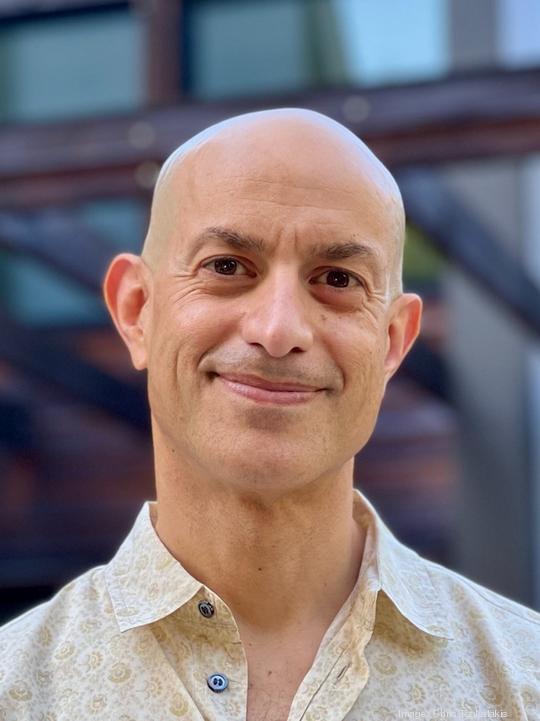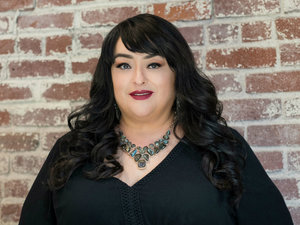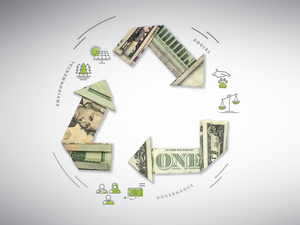
After three decades of working in e-commerce and consulting, Chris Tsakalakis joined the San Francisco-based microlending company Kiva as its new CEO in April. The son of Greek immigrants, he grew up watching his father build a new life for the family by starting a small business in Chicago — a feat made possible by a loan.
After working at consulting firm Bain & Company, Tsakalakis helped lead a number of e-commerce companies including Vivino, a wine recommendation app and marketplace, as well as eBay, where he oversaw the acquisition of entertainment ticket resale site StubHub. He also spent a year as an entrepreneur in residence at Benchmark Capital.
Kiva crowdsources funding from individuals who can lend as little as $25 and offers interest-free microloans to small businesses and entrepreneurs around the world. It also provides managed lending and corporate matching programs for larger partners. Around 94% of its loans are distributed outside of the US, and a majority of their borrowers are women and people of color. Since it was founded in 2005, Kiva has given out $1.65 billion in loans to 4.1 million people in 77 countries. It also counts nearly 2 million people as lenders through its platform and launched a monthly subscription-style option for lenders called Monthly Good earlier this year.
The Business Times spoke with Tsakalakis about why he believes in impact investing, whether there are signs of economic recovery for small businesses and why people keep lending on Kiva despite getting negative returns.
What drew you to Kiva? I joined for two basic reasons: purpose and people. Having spent 25-plus years in the e-commerce space, I really wanted to focus my next job on something that I cared about. Not just selling wine and tickets to rich people, which is what I had done in the past. So I really focused on purpose and finding an organization that had a positive impact on the world. The other element was people. I wanted to work with people that I respected and could learn from, and I found that in the Kiva board of directors and within the group of people at Kiva that I'm working with now.
You're a first-generation Greek American. How has that experience impacted your career? It's had a big impact. My parents were both born in Greece and they came to the US just before I was born. I grew up with a bunch of aunts and uncles who all spoke Greek, which was my first language. Aa lot of my life growing up was figuring out the American system myself. My mom has a 6th grade education. My dad dropped out of high school to go to trade school and he had more education than any of his brothers. So education was important for me as a way to kind of have an easier life. My dad was an electrical contractor and I worked for him over the summers and weekends from the age of 12. I learned the value of hard work and I also learned how hard it is to work. Early on I saw that I could be a good student and felt that was my way to move forward. My parents valued it too because they didn't have that education and really wanted us to go to college. That immigrant experience let me understand that not everyone has an easy path onto getting a job. My dad was an entrepreneur partially because no one would've hired him.
Can you define impact investing? It is the idea of putting your money to work to have a positive impact and not just making more money. Some would argue that donations are like that but you don't get your money back. Think of it a little bit as a combination of giving to a good cause, but expecting a return. When I look at Kiva, we're investing in people who need it the most and we're giving access to capital to people who wouldn't get it ordinarily or would get it but at a much higher cost.
If you're giving out zero-interest loans, how do you make money on that? Well, we're a non-profit so we don't make money in the traditional sense. For a lender on Kiva, you don't make money. The repayment rates have been traditionally 96%, so you'll lose a little bit of money but that money when it does come back can be relent. We have people who have been on the platform for many years. They may have started with $100 and over the course of four or five years they may have funded $600-worth of loans. You're not going to get rich, but you're not going to lose all your money or give it away like a donation. For Kiva, we ask lenders to provide a donation to us. In some cases we charge partners a fee for the work that we do, and we have a strategic partners team that goes out to corporations and foundations and asks them to fund our mission.
2020 was a banner year for venture capital in the US and this year is looking like another record year but women, people of color, immigrants… there's still a lot of people who are cut off from that ecosystem. How does Kiva unlock doors for these folks? In the United States, our borrowers make anywhere from zero to $100,000 a month in revenue. They are entrepreneurs and small businesses but among the loans we give out in the US, 60% of them have been rejected from traditional institutions. We don't depend on credit scores and we aren't requiring a 10x return that a venture capital firm would look at.
Do you have any advice for women, immigrants and people of color who want to start a small business? I think there are a lot of potential resources. There's the Small Business Administration in the U.S and a lot of cities have their own version. We also have a whole host of hub partners in the U.S. who tend to be non-profits. You're not alone. There are resources out there for you. Some of them are governmental and some are non-profits but most of them are not there to make money off you. They're there to help.
I think sometimes there's a perception that banks are predatory. They can be. But there are banks that are CDFIs, community development financial institutions, that are focused on this kind of smaller business. We have a fund we manage like that called the California Rebuilding Fund where it's taking money from large banks and then fueling that money to CDFIs so that they can support local small businesses.
Do you have any advice for other investors who might be wary of bringing impact metrics into their decision-making process? I think you need to decide what your focus is. If your focus is only on a financial return then I guess the impact metrics can work against that. But even a firm like Blackstone, which is clearly a very financial-driven company, has certain metrics, certain minimums on ESG (environmental, sustainability and governance) standards. It's not that you can only do one or the other, you can get a financial return and still have a positive impact. The people who lend on Kiva have made a conscious decision that, hey, I don't need 100%. I'm ok with negative interest, and that's effectively what we give people.
How has the pandemic impacted Kiva's work? Last year we saw a lot of loan payment moratoriums which affected payments to our lenders and, yet, our lenders kept coming. We did see a slight decrease in our loan volume last year, but it's come back up. We'll do over $150 million in funding of loans this year. Last year was $127 million. The main thing that we did was, we saw that some of our partners had liquidity problems, so we quickly created crisis support loans to the tune of about $8 million to support them. Now as the world is slowly coming out of the pandemic, our repayment rates are going back up. Things are starting to rebound.
Are you seeing signs of recovery for the small businesses that Kiva works with? Yeah, I think so. If you look at the health of repayments, it's improved over the course of the last six months. One of the things that impacted our program is fewer people wanting to take on loans during the pandemic. There's a risk even at zero percent interest. I think we're seeing more interest now from people wanting to take on more loans.
The Deets
Residence: San Francisco
Hobbies: Cooking, swimming and weightlifting
Reading: "Elon Musk: Tesla, SpaceX, and the Quest for a Fantastic Future" by Ashlee Vance
Watching: The Chair, Jay Leno’s Garage
Education: B.S. in economics and business from University of Pennsylvania
First investment: AOL
Most proud of: My 2 sons, Matthew and Stefan





